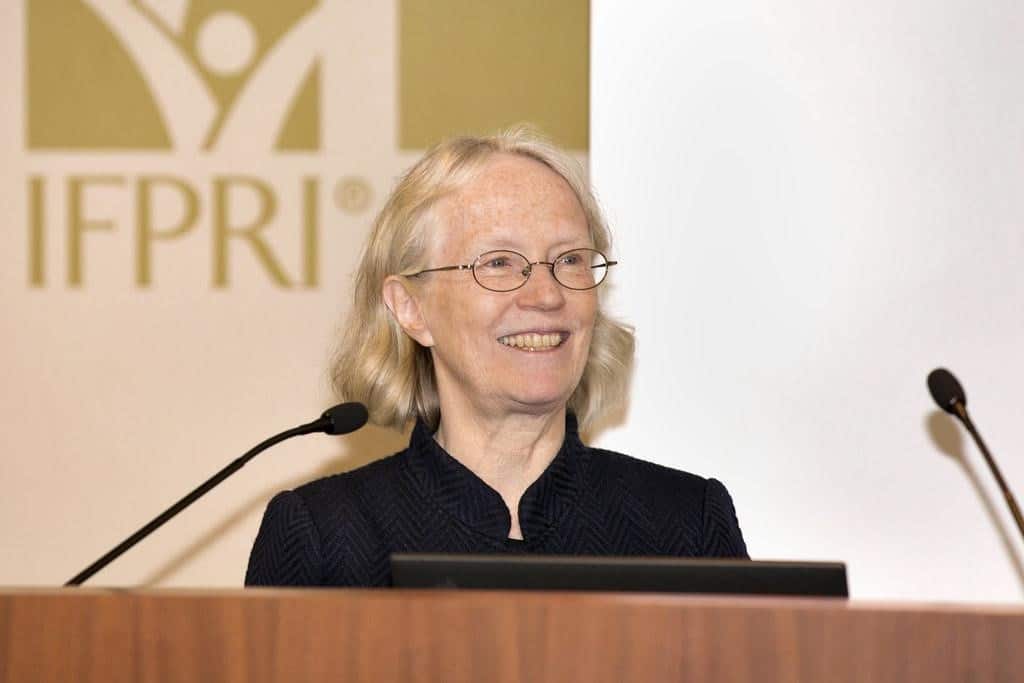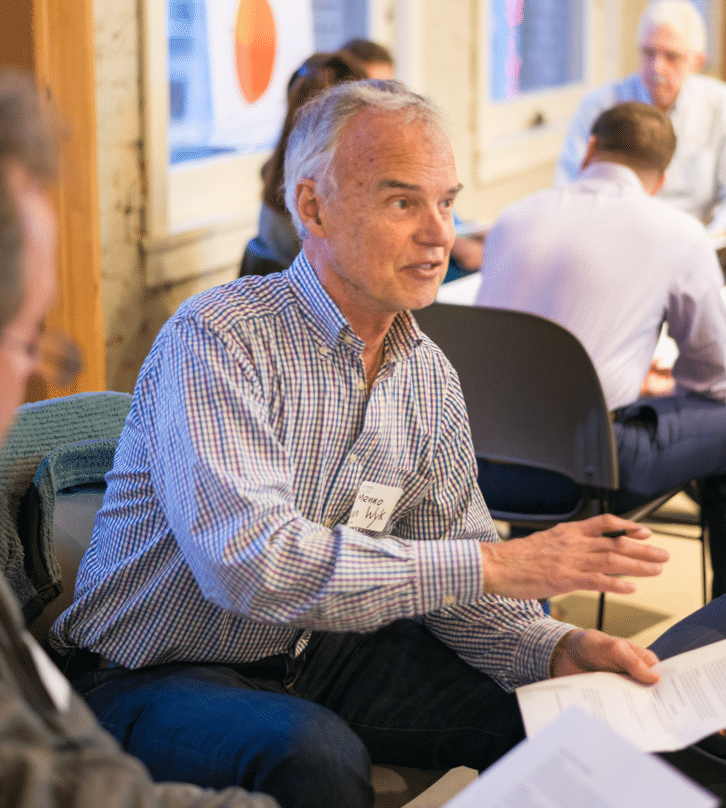A pioneering climatologist famous for modeling global warming’s impact on worldwide agriculture is this year’s recipient of the World Food Prize.
Cynthia E. Rosenzweig, a former farmer who’s now a scientist at NASA’s Goddard Institute for Space Studies, was named the 2022 World Food Prize laureate in a ceremony held at the U.S. Department of State in Washington, D.C. last week. As winner of the “Nobel Prize for food” Dr. Rosenzweig picks up the title of 52nd Food Prize laureate and a $250,000 cash prize.
In prepared remarks, Dr. Rosenzweig said she was honored by the World Food Prize Foundation’s recognition of the importance of climate science in promoting food security. “Food systems are emerging at the forefront of climate change action,” she said. “Climate change cannot be restrained without attention to food systems emissions, and food security for all cannot be provided without resilience to increasing climate extremes.” Dr. Rosenzweig did not attend her award ceremony at the State Department, but she is scheduled to appear at the World Food Prize Foundation’s Norman E. Borlaug International Dialogue occurring this October in Des Moines, Iowa.
World Food Prize Foundation President Barbara Stinson said Dr. Rosenzweig was an easy choice as the recipient of this year’s honor.
“An agronomist and a climatologist, she has been a leader in the field of food and climate since the early 1980s, when she carried out some of the first studies on how climate change would impact food production in North America,” Stinson said at the ceremony. “She quickly escalated this work and elevated it to global studies, incorporating economics, social research, using agricultural science to better understand and predict trends. She was one of the first to document the impacts of climate change on our food supply.”
Long-time food security and climate action champion
A biography of Dr. Rosenzweig posted on the World Food Prize Foundation’s website tells the tale of how she started her career as a farmer.
An American, Cynthia Rosenzweig grew up in Scarsdale, New York. She attended Stanford University in the 1980s. It was at Stanford where she met her husband, Arthur, and later moved with him to Italy where they lived and farmed in the Tuscany region. The couple eventually returned to the United States.
After earning a two-year degree from a technical college on Long Island, Dr. Rosenzweig, her husband, and their friends started a corn and cucumber farm in the early 1970s. She later earned undergraduate and graduate degrees in agricultural sciences from Rutgers University in the 1980s, and obtained her doctorate in Plant, Soil, and Environmental Sciences from the University of Massachusetts in 1991. Dr. Rosenzweig eventually shifted focus to climate change science and climate modeling. In a recorded message, Secretary of Agriculture Thomas Vilsack said noted that Dr. Rosenzweig developed her first “transdisciplinary model” exploring the impact of climate change on agriculture in 1985.
She remains active in collaborations on climate modeling to this day, helping develop systems enabling scientists to explore in ever finer detail how global warming will likely impact global food production. She played a key role in developing AgMIP, or the Agricultural Model Intercomparison Improvement Project. That work and her broader career successes drew the attention of the Intergovernmental Panel on Climate Change, leading her to co-author a section of the IPCC’s 2019 global assessment report.
State Department recognition
At the award announcement, Undersecretary of State Jose Fernandez said awarding the Food Prize to a climate scientist underscores the threat rising concentrations of greenhouse gases in the atmosphere pose to farming and food security everywhere. “We’re seeing rice fields drown in floods. We’re seeing other crops wither in droughts. We’re seeing shellfish die in more acidic oceans, and crop diseases are spreading to new regions,” he said. “We likely would not understand all these problems as well as we do today without the work of Dr. Cynthia Rosenzweig, this year’s World Food Prize laureate.”
Undersecretary Fernandez added that Dr. Rosenzweig’s work has proved invaluable to improving governments’ understanding of global warming. “Thanks to her research, we can better predict how rising temperatures, extreme weather, and carbon dioxide will affect food production and quality, and the work she’s done for NASA, for the United Nations, and for the U.S. Congress has empowered lawmakers and also policymakers to make smarter decisions to protect agriculture against the changing climate,” he said.
As a climate scientist and agronomist, Dr. Rosenzweig said she hoped her World Food Prize would help elevate concern for agriculture’s future in global climate change negotiations moving forward. “As we move into a crucial decade of action on climate change, food needs to be at the table,” she said.
Along with improving nutrition and farm income, which are also closely linked to climate, climate adaptation in agriculture is a top priority at Grow Further. Perhaps we will support the work of the next Dr. Rosenzweig.
— Grow Further
Photo credit: Dr. Cynthia Rosenzweig, 2022 World Food Prize laureate, speaking at an International Food Policy Research Institute event in 2016. IFPRI.




